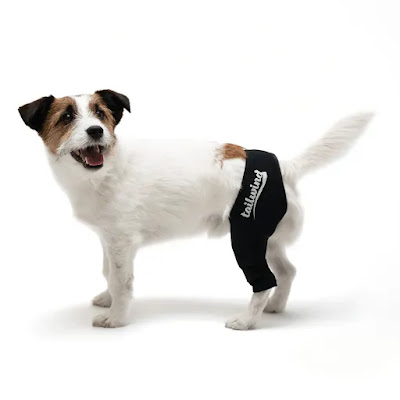In
the evolving landscape of pet care, the contemporary approach to addressing
canine knee issues has undergone a paradigm shift, emphasizing the crucial role
of professional consultation when considering the use of dog knee braces. This modern perspective acknowledges that the well-being
of our furry companions requires a comprehensive and tailored approach, where
the expertise of veterinarians plays a pivotal role in ensuring optimal care.
Understanding
the Contemporary Landscape
In
recent years, there has been a growing recognition of the nuanced nature of
canine health, particularly concerning knee injuries and joint conditions. As a
result, pet owners and caregivers are increasingly turning to a contemporary
approach that prioritizes collaboration with veterinary professionals to
navigate the complexities of their dog's well-being.
The Evolution
of Dog Knee Braces
Dog knee braces, have evolved into
sophisticated orthopedic devices designed to provide targeted support and
stability for dogs facing knee injuries, joint conditions, or post-surgery
recovery. The contemporary emphasis on professional consultation acknowledges
the nuanced nature of these dog braces, recognizing that a
one-size-fits-all approach is inadequate for the diverse range of canine
conditions.
Why
Professional Consultation Matters
v Accurate
Diagnosis: Canine knee issues
can stem from a variety of causes, including ligament tears, arthritis, or
post-surgery recovery. Professional consultation ensures an accurate diagnosis
of the specific condition, allowing for a tailored approach to care.
v Customized
Treatment Plans: Veterinarians,
with their specialized knowledge, can craft customized treatment plans that may
include the use of knee braces for dogs. These plans take into account the dog's individual health
status, the severity of the condition, and other relevant factors.
v Proper Sizing
and Fit: The contemporary
approach acknowledges that the effectiveness of a dog knee brace hinges on its proper sizing and fit. Veterinarians play a
crucial role in ensuring that the chosen brace aligns with the dog's anatomy,
guaranteeing optimal support and comfort.
v Addressing
Underlying Issues: Knee issues in
dogs can sometimes be symptomatic of broader health concerns. Professional
consultation enables veterinarians to identify and address any underlying
issues that may contribute to the knee problem, ensuring a holistic approach to
the dog's well-being.
Navigating the
Contemporary Approach
v Collaborative
Decision-Making: Contemporary
pet care involves a collaborative decision-making process between caregivers
and veterinarians. Together, they assess the specific needs of the dog and
determine the most appropriate course of action, which may include the use of a
knee brace for dogs.
v Educating Pet
Owners: Veterinarians take on
the role of educators, providing pet owners with a nuanced understanding of
their dog's condition and the potential benefits of using a dog knee brace.
This empowers caregivers to make informed decisions regarding their pet's
health.
A Holistic
Approach to Canine Well-being
The
contemporary approach to dog knee braces underscores a commitment to holistic canine well-being. It
recognizes that addressing knee issues goes beyond providing a simple
accessory; it involves a comprehensive strategy that considers the dog's
overall health, lifestyle, and specific medical condition.
Conclusion
In the dynamic landscape of pet care, the contemporary approach to dog knee braces places professional consultation at the forefront. This collaborative and informed approach not only ensures the precise diagnosis and treatment of canine knee issues but also reflects a commitment to the well-being and vitality of our cherished companions. By embracing this contemporary perspective, caregivers are equipped with the knowledge and guidance needed to navigate the complexities of canine health, ultimately fostering a relationship between pets and their owners grounded in care, understanding, and a shared commitment to optimal well-being.










